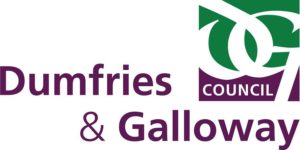Case study: Dumfries & Galloway Council
State of Open: The UK in 2022
Phase One “The Open Source Journey”


James Parker, Community Planning & Engagement Service
Michael von Euw, Head of Applications, Scottish Tech Army (STA)
Synopsis
Dumfries and Galloway Council, overseeing 85 Community Councils in southwest Scotland, has embraced Open-Source software, particularly Odoo, to standardise information-sharing practices. Recognising the diverse ways in which councils disseminate information, the initiative aims to establish a uniform website template using Odoo’s community version, reducing financial strain on councils. The project involves trial and error, evolving from a traditional approach to replicating and adapting a single solution across all councils. Volunteer-driven, the platform is managed by a diverse group, including cybersecurity graduates and coders. The council aspires to transition from software consumers to contributors, deploying the template widely for secure, digital information sharing. The endeavour underscores the societal importance of community councils in local democracy and demonstrates the efficacy of open-source solutions for collaborative and cost-effective governance.
2.3 Case Study – Dumfries and Galloway Council
James Parker, Community Planning & Engagement Service
Michael von Euw, Head of Applications, Scottish Tech Army (STA)
Dumfries and Galloway Council, a local authority in southwest Scotland with 6,000 employees, is responsible for the delivery of all local authority services and information for residents and businesses totalling 150,000 people. They consume the open source software tool Odoo and have used this to develop uniform website templates for Community Councils.
As James explains most community councils still share information the old fashioned way, “currently, we’ve got 85 Community Councils and 85 different ways of getting the information out, that kind of inhibits information sharing and the sharing of good practice and knowledge.” Most community councils would greatly benefit from a uniform system and template that unifies their practices. Dumfries and Galloway Council have taken the initiative to use open source software as an efficient and effective way to create a standard, uniform website and data capture across all 85 community councils.
Within the public sector, James sees community councils as “the fundamental purpose of a community council, is it’s the closest level of local democracy and representation for the people. The more people can get involved, the more democratic it is, the more effective it is.” They are a statutory consultee, representing the interest of their communities. Essentially, they could form a single point of contact to represent community related concerns. The core objectives are more societal as opposed to financial. This has led them to consume and leverage the benefits of open source software for their digital goals as it allows them to move at pace, innovate, and produce quality work with a volunteer workforce.
Leveraging Open Source Software for the public good
They collaborated with STA to consume open source software and develop a universal and consistent website template. The primary reason for using open source software is to ease the community council’s financial burden and more importantly to be able to scale-up. They use the community version of Odoo as the backbone software for the template. It is a unique open source software tool that allows community developers to provide usability that scales across sites. As Michael notes , “That’s the beauty of open source, we can tweak things and make it work slightly better. This allows us now to have one database for every council area with centralised access for us and the council, as well as a central document distribution for everybody.”
It’s been a trial and error process. Originally, they adopted a traditional methodology to build solutions, but soon learnt that having one solution replicated and adapted across the board avoided the need to start from scratch. Michael feels that it’s been a learning curve for everybody and has allowed them to develop adequate and useful processes for robust solutions.
Societal value: community driven culture
The platform is built, managed and maintained by capable and experienced volunteers. Michael highlights that in the beginning it was a challenge to find the right knowledge base within the volunteer community, but now have a diverse group consisting of a scrum master, two graduates of cyber security, a researcher and multiple coders from various sectors. As they continue to iterate, they are building an internal knowledge base, and developing skills that assist volunteers with the to complete and maintain the project.
Shaping the future
Moving forward they would like to make the shift from consuming to contributing back to the Odoo community, which has helped them immensely in their journey. As they work to deploy the template across the multiple councils, they hope to create a future, where community councils can pass on information to individuals in a secure, digital and efficient way.
